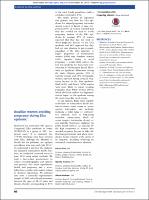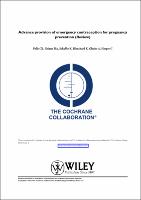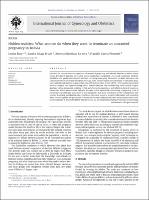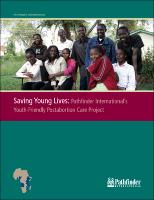Mostrar el registro sencillo del ítem
Brazilian women avoiding pregnancy during Zika epidemic
| dc.contributor.author | Diniz, Debora | |
| dc.contributor.author | Medeiros, Marcelo | |
| dc.contributor.author | Madeiro, Alberto | |
| dc.date.accessioned | 2017-10-30T00:39:21Z | |
| dc.date.available | 2017-10-30T00:39:21Z | |
| dc.date.issued | 2016-12-23 | |
| dc.identifier.citation | Diniz, D., Medeiros, M., & Madeiro, A. (2016). Brazilian women avoiding pregnancy during Zika epidemic. Journal of Family Planning and Reproductive Health Care, 43(1), jfprhc-2016-101678. DOI:10.1136/jfprhc-2016-101678 Recuperado de: http://clacaidigital.info:8080/xmlui/handle/123456789/1065 | es |
| dc.identifier.uri | http://clacaidigital.info/handle/123456789/1065 | |
| dc.description.abstract | Brazil now has confirmed 1845 cases of Congenital Zika syndrome in babies (TORCHZ) in a group of 9091 suspected cases.used a face-to-face questionnaire to collect sociodemographic and opinion and practices data about reproductive health and pregnancy and a secret ballot box to gather information related to abortion experiences. We collected data from a nationally representative sample of 2002 urban Brazilian women between the ages of 18–39 years and literate, thereby corresponding to 83% of the total female population (with a confidence interval of 2%). The results provide an important first glimpse into how the Zika epidemic has shaped pregnancy intentions among women in Brazil. A large proportion (56%) of women reported thatthey had avoided (or tried to avoid) pregnancy because of the Zika epidemic. | es_ES |
| dc.language.iso | en_US | es_ES |
| dc.publisher | The Faculty of Sexual and Reproductive Healthcare | es_ES |
| dc.subject | Zika | es_ES |
| dc.subject | Embarazo | es_ES |
| dc.subject | Brotes de enfermedades | es_ES |
| dc.subject | Brasil | es_ES |
| dc.subject | Enfermedades congénitas | es_ES |
| dc.subject | Aborto | es_ES |
| dc.subject | Salud sexual y reproductiva | es_ES |
| dc.title | Brazilian women avoiding pregnancy during Zika epidemic | es_ES |
| dc.type | Article | es_ES |



